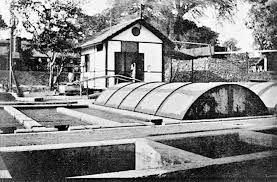India saw its first practical application of biomethane when a methane plant was installed in a colony near Bombay (now Mumbai, Maharashtra).
This marks one of the earliest recorded uses of biogas technology in the country.
Biomethane is a renewable energy source produced from the anaerobic digestion of organic matter, such as agricultural waste, manure, and sewage.
It is chemically identical to natural gas and can be used for cooking, heating, electricity generation, and as a vehicle fuel.
Early Biogas Innovation: India was among the first nations to experiment with biogas for practical applications.
Foundation for Future Biogas Plants: This initiative paved the way for modern biogas technology in India, leading to the development of gobar gas plants in rural areas.
Sustainability & Energy Independence: The use of biomethane contributed to reducing reliance on fossil fuels and promoting renewable energy solutions.
Today, India has a widespread biogas industry, with applications in rural households, industries, and transportation.
The government continues to promote biogas and compressed biomethane gas (CBG) projects under initiatives like the Sustainable Alternative Towards Affordable Transportation (SATAT) scheme.
The 1857 methane plant was a pioneering step in India’s renewable energy journey, showcasing the country’s early adoption of green energy solutions.







